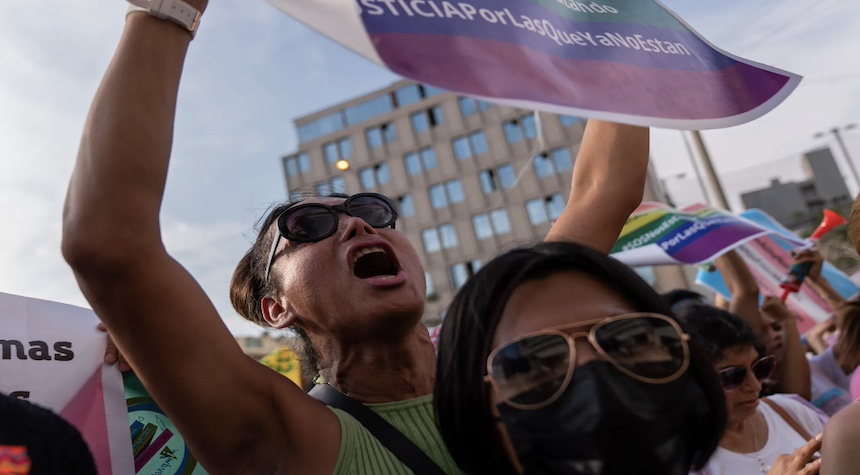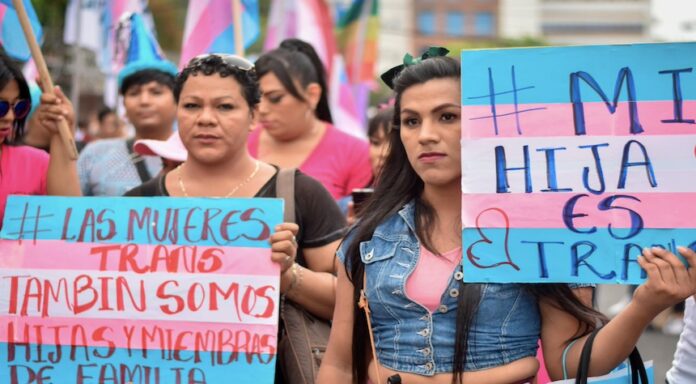Peru has classified those who identify as transgender as “mentally ill”.
The Daily Mail reports that the Peruvian Government has recognized mental health as a medical condition. Peru’s Public Health Service noted that the government can “guarantee complete coverage of medical care for mental health”.
According to the decree signed by President Dina Boluarte ‘transsexualism and dual-role transsexualism in childhood, gender identity disorder, other gender identity disorders, and fetishistic transvestism’ are all now recorded as mental diseases.
Rights groups are furious about the move. It comes days before the World Health Organisation celebrates the 34th anniversary of removing homosexuality from its International Classification of Diseases.
In 2019, the WHO removed transsexuality as a disease from its manual when a proposed new version of the ICD came into force in 2022.

Free “psychological therapy” is included in the guarantee of medical care. Some LGBT activists have claimed that this will only lead to conversion therapy, a practice that is banned in Peru.
Percy Mayta Tristan, a researcher in medicine at Lima’s Scientific University of the South (US), said Peru lacked “awareness”.
Mayta Tristan, Yahoo News, said: ‘You cannot ignore the context of this happening in a super conservative society where the LGBT community does not have any rights, and where labeling the LGBT as mentally ill allows conversion therapy.
Peru may be criticized for being behind the times. Recent steps have been taken by countries to reduce gender-affirming care for youth. After ending all gender-affirming care for children, the U.K. National Health Service is now examining whether gender-affirming treatment is beneficial to transgender adults.

Riittakerttu (Dr.) Kaltiala is a pioneer of gender-affirming care for children. She has spoken out about the harm that treatment can cause, particularly to younger patients. Kaltiala said that many people with gender identity issues have had trauma or mental illness before:
Some of them came from families with multiple psychological problems. Many of them experienced a difficult childhood marked by social isolation, extreme temper tantrums, and developmental problems. Many of them had academic problems. Bullying was a common occurrence, but not always based on their gender. They were withdrawn and lonely in adolescence. Some of them were not in school anymore, but instead spent all their time in their rooms. Some had anxiety and depression, others had eating disorders. Many self-harmed, while others had psychotic episodes. Many, many of them were on the autism spectrum.
Peru’s position on transgenderism, and its offer of help to those with the disorder, may be justified due to changes in the medical community. It was called “gender dysphoria,” and classified as a psychological disorder before it became known as transgenderism.
The government of Peru is unlikely to change its mind about this classification, at least anytime soon.


